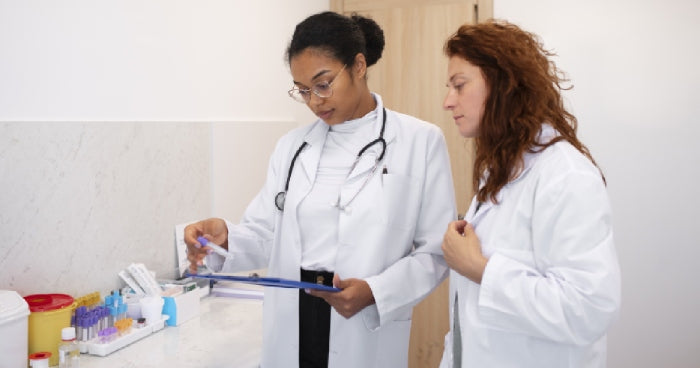
How to Prepare for Clinical Skills Lab in Nursing School: A Comprehensive Guide for Nursing Students and the NCLEX Exam
The clinical skills lab is an integral part of nursing education, where students develop and refine their hands-on clinical competencies.
As a Nursing Student preparing to pursue a career in nursing and appear in the NCLEX Exam, it is crucial to be well-prepared for the clinical skills lab. This blog post will guide you through essential steps to prepare for the clinical skills lab, offering valuable tips and strategies to enhance your readiness and maximize your learning experience.
1. Familiarize Yourself with Lab Equipment and Procedures:

Before attending the clinical skills lab, familiarize yourself with the equipment and procedures you will encounter. Review the lab manual, instructional videos, and any provided resources to understand the proper usage and steps involved in various clinical skills. This preparation will help you feel more confident and competent during lab sessions.
2. Review the Skills Lab Schedule:

Review the skills lab schedule provided by your Nursing Program. Take note of the procedures and skills you will be learning and practicing during each session. This will allow you to plan your study and practice time accordingly, ensuring you are adequately prepared for each lab session.
3. Pre-Lab Preparation:

Prior to each lab session, prepare by reviewing the related theory and concepts. Understand the rationale behind each procedure, familiarize yourself with the steps involved, and study any applicable guidelines or protocols. This will provide you with a solid foundation and Help you approach the lab session with confidence.
4. Practice, Practice, Practice:

Practice is key to mastering Nursing Skills. Take advantage of opportunities to practice the procedures outside of the lab setting. Utilize simulation tools, practice on mannequins, and seek out additional resources such as online videos or skill demonstration materials. The more you practice, the more comfortable and proficient you will become.
5. Seek Guidance from Instructors and Peers:

Don't hesitate to seek guidance and Support from your instructors and peers. They can provide valuable insights, tips, and feedback on your performance. Engage in collaborative learning, participate in peer practice sessions, and ask questions during lab sessions. This collective learning approach will enhance your Skills and Knowledge.
6. Develop Time Management Skills:

Effective time management is essential in clinical skills lab. Learn to prioritize your tasks and allocate sufficient time for practice and preparation. Create a study and practice schedule that aligns with your lab sessions and other academic commitments. This will help you stay organized and make the most of your lab experience.
7. Embrace a Growth Mindset:

Approach your clinical skills lab sessions with a growth mindset. Embrace challenges as opportunities for growth and learning. Learn from your mistakes, seek feedback, and persist in your efforts to improve. Remember that clinical skills lab is a safe environment to practice and develop your skills, and every session is a chance to enhance your competency.
Conclusion:
Clinical skills lab is an essential component of nursing education, providing nursing students with the opportunity to develop and refine their practical Nursing Skills. By following these tips and strategies, nursing students can effectively prepare for their clinical skills lab sessions. From familiarizing themselves with the lab environment to practicing diligently and seeking guidance from instructors and peers, each step contributes to building confidence and competence in performing nursing procedures. Ultimately, excelling in clinical skills lab will not only enhance your learning experience but also prepare you for success in the NCLEX Exam and future nursing practice.







